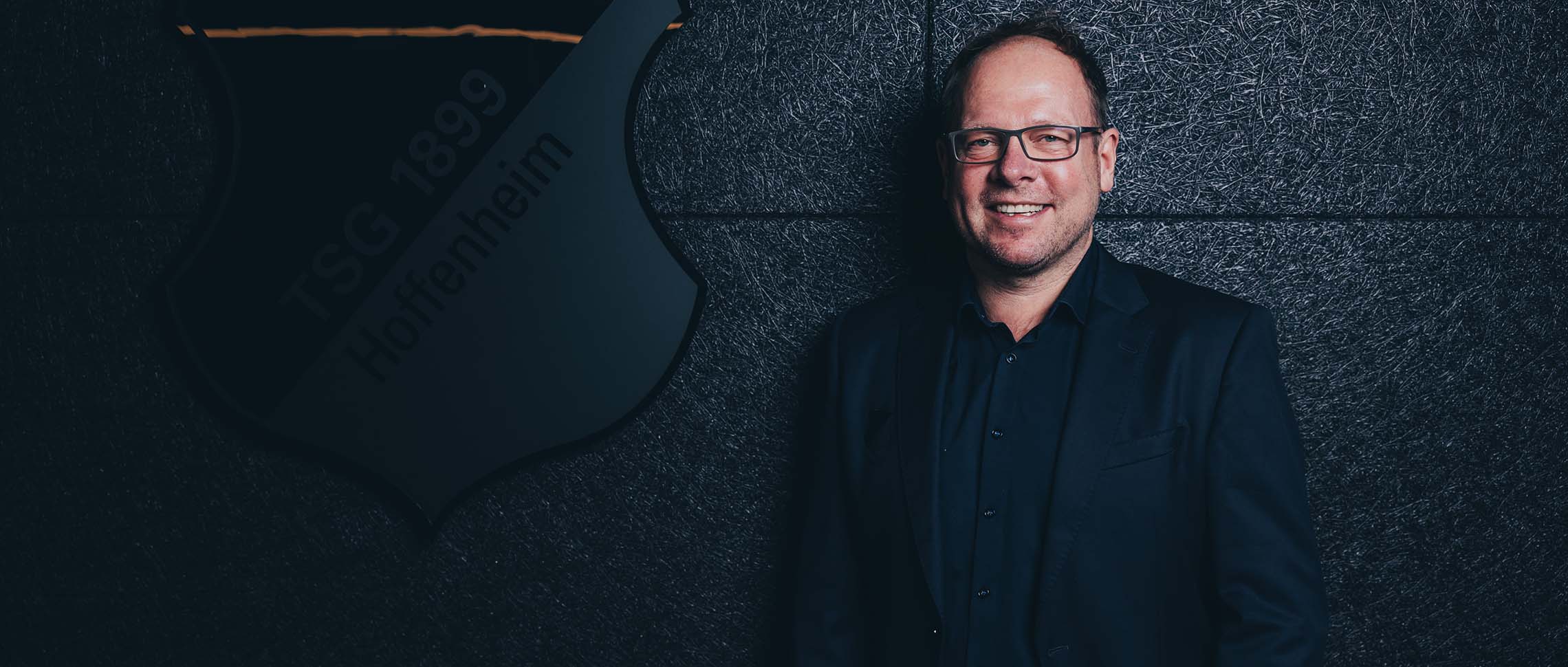In an interview with SPOBIS, the leading European sports business platform at B2B level, TSG managing director Jan Mayer speaks, among other things, about TSG Hoffenheim’s role as a village club in direct competition with other clubs from cities with millions of inhabitants: “We are rethinking football. We have no choice but to position ourselves differently, to be courageous, to break new ground. This applies to core issues such as our youth development, but of course also to internationalisation. We are thrilled about every TSG fan worldwide who follows us through media channels, but that cannot be our primary focus.”
The renowned sports scientist sees the partnership with FC Cincinnati as an important factor in this regard: “Together, we have set ourselves the goal of identifying and developing talent, highlighting new training paths and also having a social impact. The partnership is based on four pillars: talent, knowledge, brand and business. We are linked across all departments and levels and are in constant dialogue with each other. With the help of our partner’s expertise, we can not only better master the complexity of the American market, but also create new resources, development paths and revenue potential for both clubs relatively organically and based on their respective needs.”
However, TSG are not only cooperating with FC Cincinnati, but also with COPA and Stanford University – also important partnerships, as Mayer emphasises: “For us, this approach is a great opportunity to diversify and at the same time strengthen and relieve some of the pressure on our core business. In a strategic triad with FCC, Stanford and COPA, Hoffenheim can become a visible brand name in the growth market of the USA and contribute to a revolution in youth football in the United States.”
The 51-year-old also sees such projects as an opportunity for the Bundesliga: “We are giving the Bundesliga brand another facet internationally, representing German football with our expertise and naturally also want to create synergies. Our approach is a good example of the kind of mindset that can help us as a league with 36 clubs to move forward with internationalisation. Each club should – based on its own strengths and specialities – think carefully about how it can use its strengths internationally. Together, we 36 clubs can unleash more power than if just a few top clubs like Bayern and BVB lead the way and always put all the responsibility on their shoulders – even if they are certainly the global locomotive. There is no template that is suitable for all 36 clubs. But each club can still make its own contribution to the growth of the Bundesliga’s international business.”
The full interview can be read here.
The full interview can be read here.

